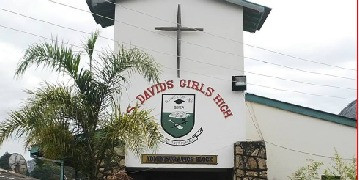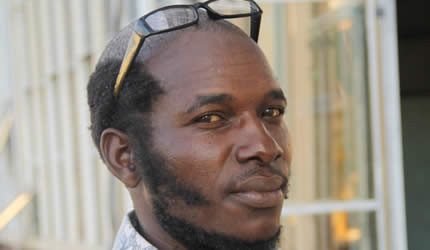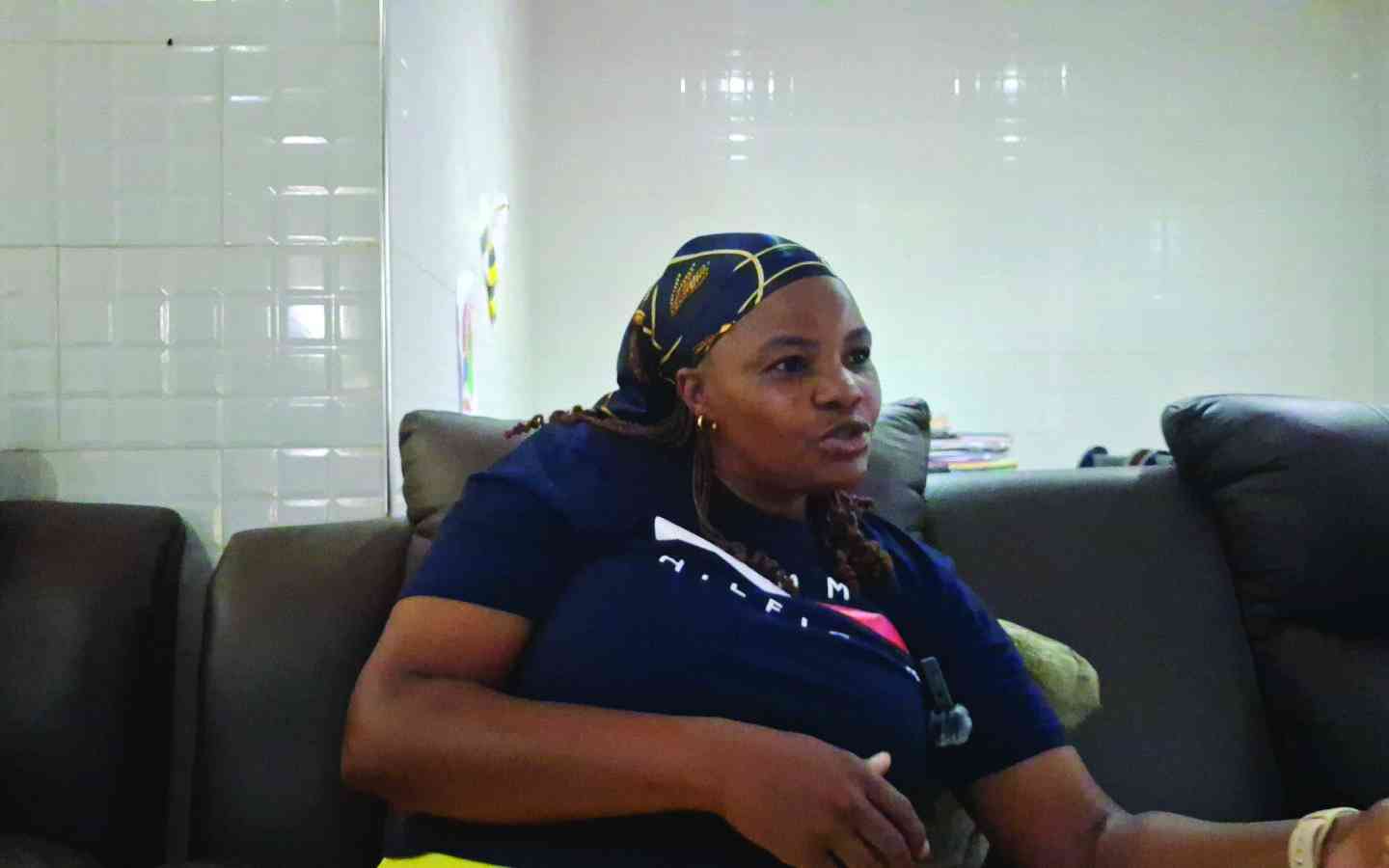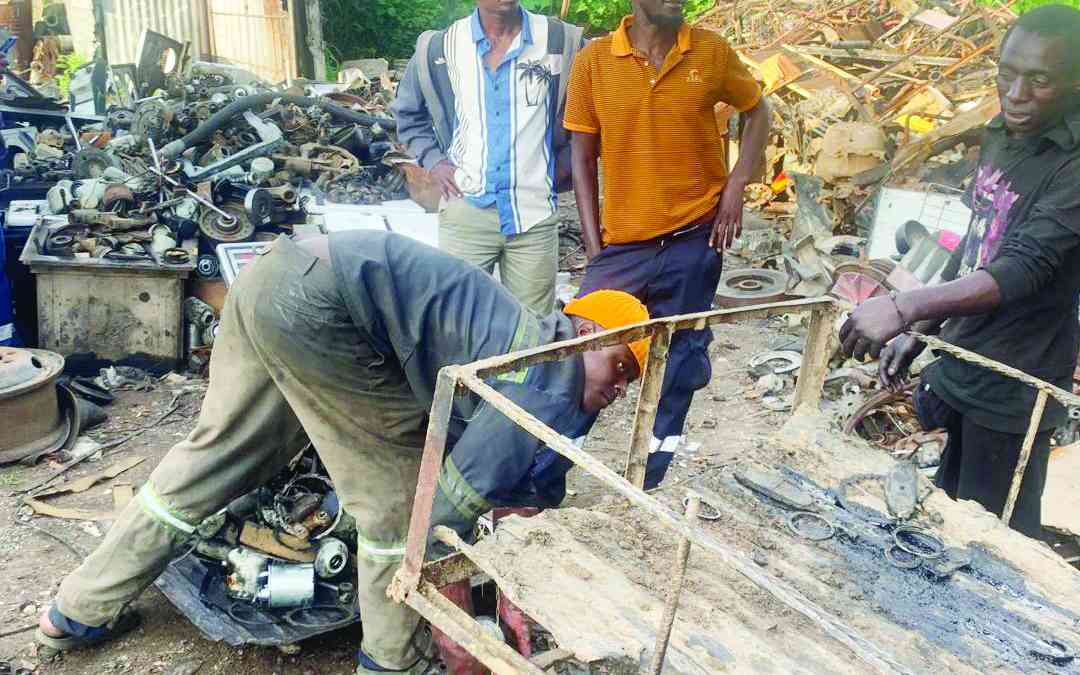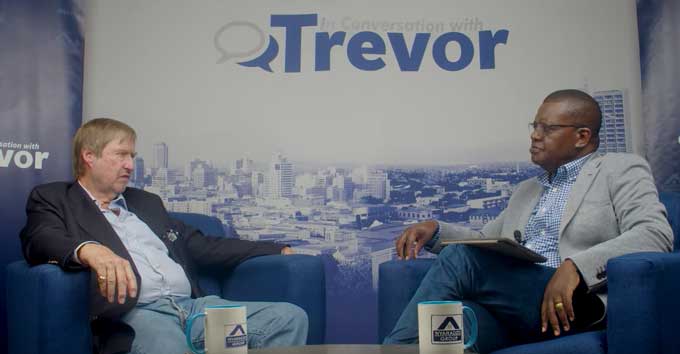
Leading business executive David Long says for Zimbabwe to revive its economy the country must invest in human capital.
Long (DL), a former president of the Confederation of Zimbabwe Industries (CZI) and now Beit Trust director, told Alpha Media Holdings chairman Trevor Ncube on the platform In Conversation with Trevor, that talent was critical for the country to rebuild its manufacturing sector.
Below are excerpts from the interview.
TN: David Long, welcome. You have had an illustrious career. I am delighted to have you here David.
DL: Trevor, thanks for your welcome. I am not sure about an illustrious career, but it is a privilege to be here, thank you.
TN: Well, by the time we are done the people at home will see that you have had an illustrious career.
DL: They will be the judge of that, hahahaha.
TN: You are on your third career right now, David.
- Chamisa under fire over US$120K donation
- Mavhunga puts DeMbare into Chibuku quarterfinals
- Pension funds bet on Cabora Bassa oilfields
- Councils defy govt fire tender directive
Keep Reading
- Having started at Lyons Brooke Bond in the marketing department, and you rose to become CEO. Talk to me about that journey with Lyons Brooke Bond?
DL: So, I studied law at university and then did not really want to pursue that as a career.
I thought I would like to get into the business world.
I got slightly sidetracked for a period of time coaching sport and teaching, which I also loved.
I think there remained a love of teaching of different kinds throughout my life, it has been a bit of thread almost, but did want to go into the world of business.
I was offered an opportunity to start out really as a chairman’s runner I suppose, fantastic experience.
Then, after a couple of years at Lyons I went back to university and did an MBA (Masters in Business Administration).
TN: What does a chairman’s runner do?
DL: Almost like a sort of executive assistant kind of person.
So, I was able to be exposed to a wide raft of activities and functions and what have you, within quite a complex and pretty large FMCG (fast moving consumer goods) kind of business.
TN: Does that thing still happen David? A chairman’s runner?
DL: Yes, I think so, I mean that is my colloquialism for it, but I mean I think there are people who are on executive development programmes very often get assigned to work with or alongside senior executives, not necessarily chairpersons, and that was an executive chairperson position.
So, I started to grow up in that side and gravitated more towards the marketing side, subsequently doing an MBA.
I came back and got back in the business and grew on that side.
Then I became a really quite young chief executive of that business which belonged…
TN: How young were you?
DL: Thirty four years old I suppose, something like that.
So that was owned by two large UK PLC’s. Allied (and) Lyons.
At the same sort of time I was, probably this goes back to the same time you and I first met, I got involved in the organised industry side of things.
TN: CZI?
DL: I then became president of CZI, again at a very young age, sort of, something like 36 years old.
TN: A very young achiever David?
DL: Well, I don’t know.
Then I took over as chief executive of Lyons, and then had an opportunity after a few years with chambers taking place in the big group worldwide to do what would probably be called a leverage buyout.
So, I put together a package to acquire the businesses I was running in this country and also significant businesses in Zambia and a smaller business in Malawi and a little one in Botswana.
TN: Talk to me David about the thinking process? You are CEO, then an opportunity for a buyout presents itself.
What is your thinking process? Why are you doing this. And how are you going to do this?
DL: Why I wanted to do it is because it was really an opportunity that arose because Allied Lyons at that time had made a number of big acquisitions; internationally they were now focusing on the branded spirits side of their businesses, the pub estate brewing, those sorts of things and were looking to exit the food side.
We were a bit of a hybrid in this country and had grown up through an amalgamation of the old Lyons business and the Brooke Bond business.
There was no one really big enough internationally to buy the whole of the Lyons food business.
Possibly Beatrice, possibly Nestle. Anyway, it ended up that they broke the business up into pieces.
So, the tea business was sold one way, the ice cream business was sold another way and so on.
We were sort of an amalgamation of those businesses. I thought well, hey, there is an opportunity here.
My vision, of that is not too grand a word, was to build a diversified food and beverage-based kind of business in this country, and I had a number of other companies that I was planning to target.
Frankly, to put together in old fashioned speak, to put together a conglomerate of different businesses in this country and to list it.
So that was the plan. I borrowed a great deal of money, that is what I mean by leverage, to buy the business which package I succeeded in putting together with some backers.
Then I got some of my guys to start doing memorandum accounts which nowadays would be referred to very commonly to as inflation adjusted accounts.
Before the very clever accountant guys figured that out, I said we need to figure out exactly what is going on here.
So, in nominal terms, we were growing and expanding and increasing our profits, investing in this that and the other, however, interest rates were starting to climb, I am talking the mid-to-late 1990s now.
So, interest rates were starting to climb, the exchange rate was starting to slide, we had in June 1997 was a bit of landmark, November 1997 was definitely the landmark, the so-called Black Friday etcetera.
The reality of that was that in real money terms in Sterling in this case, we were actually consuming our capital which is something that happened in a lot of businesses in this country much later, particularly in the mid 2000s.
You saw that destruction of capital? So I decided no, this was a one way road…
TN: I am exiting?
DL: To get out. So I disposed of the businesses.
TN: Before you talk about that David, let me pull you back. So fast moving consumer goods?
- Talk to me about the main brands, or the brands that stock out to you that members of the public might be familiar with or unfamiliar with?
DL: Yes, so the brands range people would remember, and some of them are still around, but not all of them because the new owners, Dairiboard Zimbabwe in most cases have changed that mix.
But Lyons made ice cream very familiar to people, Daybreak Coffee, Quench soft drinks, Rabroy sauces and condiments.
Those sorts of things, Nyanga Tea and Quickbrew.
So we had a number of category leaders like tea bags, ice cream. We launched a number of new products.
TN: Do you remember when you talk about launching a number of products, what product do you remember that you launched?
- The excitements, creation of a brand from ground zero as it were?
DL: I can think a number of examples, but I would say perhaps Cascade which was what we would call an RTD (ready to drink) milk fruit juice blend, which did very well, it was quite a very innovative product at the time.
So I look back with pride on a lot of the very good things we did in those days with very good people in what was always a challenging environment.
TN: In your product mix, any imports or most of them were manufactured locally?
DL: No, the vast majority of them were actually manufactured locally, and using local raw materials.
So locally grown tea, locally grown coffee, locally produced milk and butter and so on.
So absolutely, classic beneficiation of local raw materials.
We certainly had to import some things.
So, some of your additives, and your things like flavouring and colour powders and those sorts of things, stabilisers and so on.
But for the most part, no we were absolutely beneficiating local raw materials.
TN: We are no longer there now?
- What would it take to be looking forward with the benefit of hindsight what would it take for us to rebuild our manufacturing sector to what it was before you exited?
DL: Significant investment, but also, I think one would need to target certain things in a very precise way because of the issues of scale.
So in those days it was very much still, and that was the legacy of the (Unilateral Declaration of Independence) days, it was very much still an import substitution kind of business.
The manufacturing businesses, so that was the appeal of it obviously because you could effectively save foreign exchange by import substituting.
And the economy was still significantly protected in lots of ways by tariff and non-tariff barriers.
So, when the economy really opened up, a lot of local manufacturers simply did not have the scale to be able to compete with the really big operators.
So I think that you are starting to see that now.
The beneficiation of some local products, but that requires significant investment and scale and in many cases the technology has changed massively as well.
TN: In your view David, that investment, where does it go? Into equipment, into talent or into technology? Where does it go?
DL: It goes into all three of those.
TN: Okay.
DL: It goes into all three of those things, but as I say, because of the issues of scale, and because we are now competing in very much a kind of global economy, or be it that I think with some of the things that have happened more recently around the pandemic and I think that the world in lots of ways is perhaps falling out of love with globalisation because of the difficulties, which have arisen through dependency on certain suppliers.
I think we are seeing a bit of a swing back towards local sustainable and self-sufficiency as it were, but scale is an issue.
So yes, technology is important, but talent and so on above all.
I am a big believer in the critical importance of investing in human capital.
That is one of the things that so excites me about the work that I am doing in the Beit Trust side.
TN: So how easy was it, having come in as the chairman’s runner, growing in the business. How easy was it to exit in 1997?
DL: Very hard.
TN: Talk to me about that? What were the considerations?
DL: That was tough.
TN: Why was it tough?
DL: It was tough because I felt I had failed. It felt like a failure.
I had this great vision, and it was on track and then frankly for, it sounds like an excuse, but for exogenous reasons, for things beyond my control in terms of what was starting to happen in this country policy wise, things turned significantly and you know I was then kind of running to catch up.
As I say, that was my choice, I had chosen to gear, in other words to borrow money in real money to buy the business which was the only way I was going to do it.
Then the value of that debt in local terms, so you are making local profits, generating a dividend and then trying to pay off that debt, you were just running and going backwards.
I felt I had failed. That hit me hard.
I think that is one of the reasons why I chose not to look for another paid position as it were, but to try and do my own thing which was the start of what I refer to as my second career, which was in the consulting and advisory services space with a legal and business backbone.
- “In Conversation With Trevor” is a weekly show broadcast on YouTube.com//InConversationWithTrevor. Please get your free YouTube subscription to this channel. The conversations are sponsored by Nyaradzo Group.

